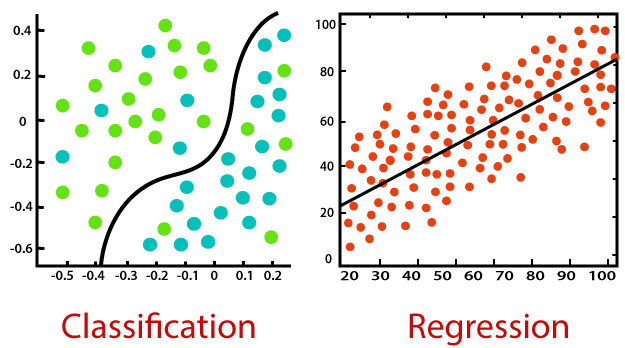Regression in machine learning consists of mathematical methods that allow data scientists to predict a continuous outcome (y) based on the value of one or more predictor variables (x). Linear regression is probably the most popular form of regression analysis because of its ease-of-use in predicting and forecasting
Imagine you're car shopping and have decided that gas mileage is a deciding factor in your decision to buy. If you wanted to predict the miles per gallon of some promising rides, how would you do it? Well, since you know the different features of the car (weight, horsepower, displacement, etc.) one possible method is regression. By plotting the average MPG of each car given its features you can then use regression techniques to find the relationship of the MPG and the input features. The regression function here could be represented as
Linear RegressionPolynomial RegressionRidge RegressionLasso RegressionElastic Net RegressionLogistic RegressionCox RegressionPoisson RegressionOrdinal RegressionSupport Vector RegressionPrincipal Components RegressionPartial Least Squares RegressionNegative Binomial RegressionQuantile Regression
- https://machinelearningmastery.com/types-of-classification-in-machine-learning/
- https://builtin.com/data-science/regression-machine-learning (use incognito)
- https://square.github.io/pysurvival/
- https://machinelearningmastery.com/classification-versus-regression-in-machine-learning/
- https://www.geeksforgeeks.org/regression-classification-supervised-machine-learning/
